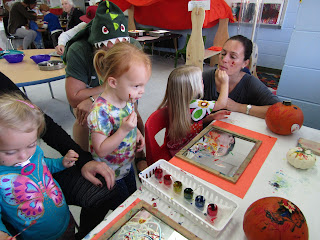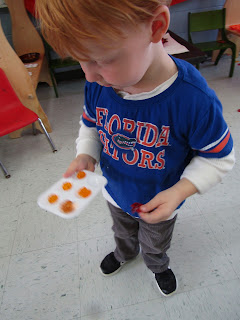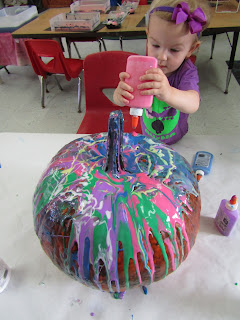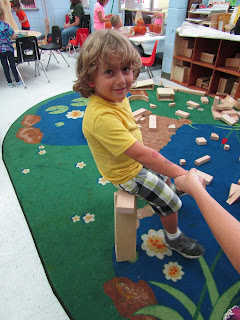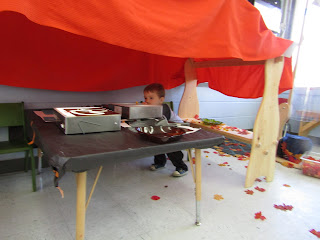Friday, October 27, 2017
Reading between the Lines
My daughter recently came home with homework that asked her to "read between the lines" of a folktale.
This is not an easy concept for a 10 year old and actually I sometimes find it difficult.
We reread the folktale and then we Dug Deeper attempting to understand the meaning that the author doesn't actually write but implies...
So, of course, I couldn't help but compare this process to teaching and parenting.
As we all know, children do not come with manuals. They behave, say, and do things that we often find nonsensical.
However, I enjoy the journey of the search into the child's mind.
While, we will never fully understand another human being or maybe even ourselves...we can all agree, there is so much there and digging deeper is well worth it.
To see the child at play...if we leave them be, and don't interrupt. We are given a glimpse, a little peak in between their lines.
There is the struggle and also great joy as they attempt to make meaning.
As children get older, the play changes and often becomes more secretive. Older children even become embarrassed if you catch them "playing" school or "House" or "shop".
The search for meaning begins to go inward.
So, how does it continue into adulthood?
If making meaning of our lives is about the most important thing we do and it begins in play...
Why do we stop?
Why do we ask our children to stop?
The very definition of Play is that it has NO purpose. There is no productive outcome.
Scientists have been trying to understand why most animals engage in play even though it serves no clearly defined advantage to the animal's survival.
However, loads of research has been conducted on depriving animals of play and the negative outcome it has on the animal, even causing premature death.
With play, comes freedom.
Something every being on this earth craves.
In play, the child is free. Free to imagine herself as a princess.
She can fly, she can talk with animals. She is only limited by her own imagination. The blocks are her castle.
This form of abstract thought has been proven to be an important skill in pre-reading.
In reading, we ask children to abstractly memorize the sound for this picture "B" is buh.
If play allows us to search for meaning and gives us the feeling of freedom which ultimately makes a person happy.
Then shouldn't we be way more concerned with this topic?
I hate to pick on sports. And, I promise you I see lots of value in sports both for kids and for adults.
But, the idea that kids should spend the majority of their day following directions in school and then go onward to follow directions in an organized sports activity is frankly...really infringing upon the child's Play time, right?
Play requires time and often long chunks of time. In play, the child can Decide for themselves. What to do, how to do it, and they find the why's for the what's.
Do YOU play?
Play as in Freedom. Play as in the quest for meaning making?
I am guessing that many of us find ways to play as we live in the adult world.
Maybe, you like to write?
Or is being outside in nature your form of play?
But, remember, your play should have no real purpose other than offering you that sense of freedom and an opportunity to "read between the lines" of life.
No biggie.
Much of this blog is inspired by Stuart Brown's book, "Play: How it shapes the brain, opens the imagination, and invigorates the soul" Unfortunately, I couldn't find my copy so there are no direct quotes. But, it's a fabulous book and well worth the check out from the library!!
Subscribe to:
Comments (Atom)


















